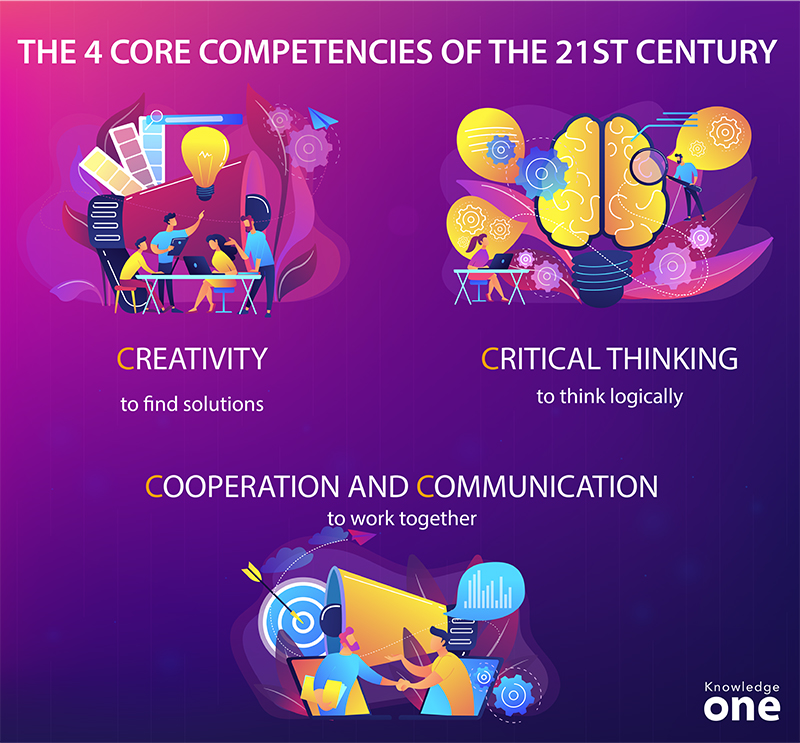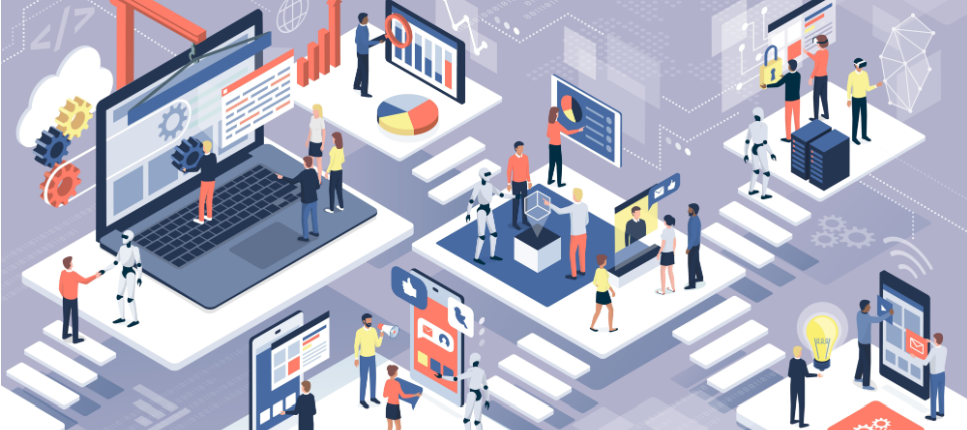In a workplace where routine tasks are increasingly performed by machines equipped with artificial intelligence (AI), the skills most valued by human beings are those that allow them to perform tasks for which the solution is not known in advance. After having presented the 7 principles of 21st-century learning according to the OECD and their application in e-learning, here are the four essential 21st-century skills, according to specialist Jeremy Lamri.
Entrepreneur and researcher in cognitive sciences, Jérémy Lamri, has written a book as well as a doctoral thesis at Paris Descartes University on 21st-century skills. According to his findings, “what is most important in today’s economy, and will be even more important in tomorrow’s, is the ability to solve problems.”(CGE, 2019) He also speaks of a transformation “of the economy” rather than “of the professions,” since: “In this new world, the production system is completely overturned, particularly by digital technology, and all these transformations have a powerful impact on the education system.”
The researcher points out that work involves two types of tasks, routine and non-routine, and that it is the former that can be given to machines. As for the latter, “these are tasks for which you don’t have the solution in advance, and something for which you don’t have the solution in advance is a problem,” he explains. To create value in such an economy, knowing how to analyze and interact is, according to him, a sine qua non-condition and the four skills, which he calls the “4Cs”, appear indispensable.
“These skills are, in a way, the basis of collective intelligence, but also today’s and especially tomorrow’s professional performance on mental activities. There is also a meta-competence, the ability to learn, which is fundamental,” explains the researcher. But developing all these skills takes time, according to Lamri, not least because they require us to change our way of thinking.
In the same vein, as we’ve mentioned several times in our articles, we believe that “learning to learn” as well as lifelong learning and improving metacognitive skills (see Metacognition 101 and Develop your metacognitive skills) are also necessary steps towards the emergence of these 21st-century core skills.

The 4 skills:
Creativity…to find solutions
Critical thinking…to think logically
Cooperation and Communication…to work together
Sources:
« Les Compétences du 21e siècle : Jérémy Lamri », Conférences des grandes écoles (CGE), 10 octobre 2019.
LAMRI, Jérémy, « Les Compétences du 21e siècle – Comment faire la différence? Créativité, Communication, Esprit Critique, Coopération », DUNOD, 2018.
LE JORT, Natacha. « Les compétences du 21e siècle – Interview de Jérémy Lamri », Nouvelle vie professionnelle, 16 janvier 2019.
Related articles:
- 7 principles of 21st-century learning and elearning
- Metacognition 101
- Develop your Metacognitive Skills
- Horizon 2030: Technology, Education and the Job Market
- 3 Types of Future Jobs
- 4 challenges for education in the digital revolution era
- Top 10 crucial competencies for 2020
- Virtual Reality in Learning as Seen by a Ubisoft Expert
- Mini glossary of artificial intelligence
- Artificial intelligence: from manual programming to deep learning
- Initiatives for a Responsible and Human-Centered Artificial Intelligence
- Will a robot replace your job?
Author:
Catherine Meilleur
Creative Content Writer @KnowledgeOne. Questioner of questions. Hyperflexible stubborn. Contemplative yogi.
Catherine Meilleur has over 15 years of experience in research and writing. Having worked as a journalist and educational designer, she is interested in everything related to learning: from educational psychology to neuroscience, and the latest innovations that can serve learners, such as virtual and augmented reality. She is also passionate about issues related to the future of education at a time when a real revolution is taking place, propelled by digital technology and artificial intelligence.







Leave A Comment